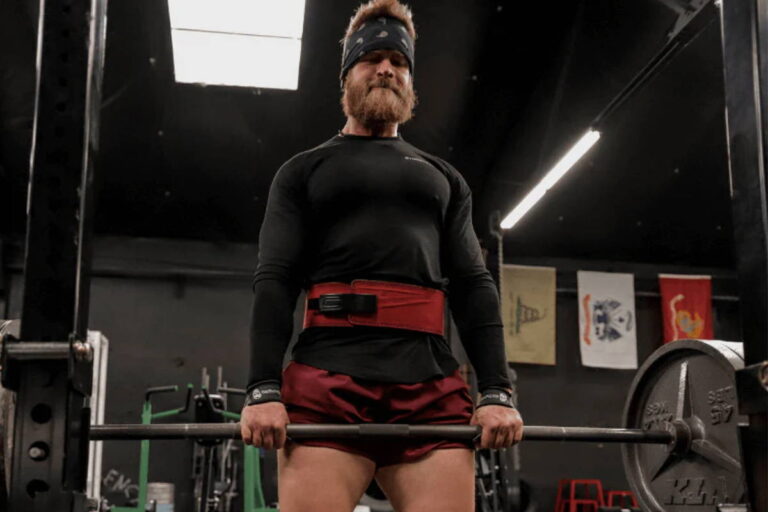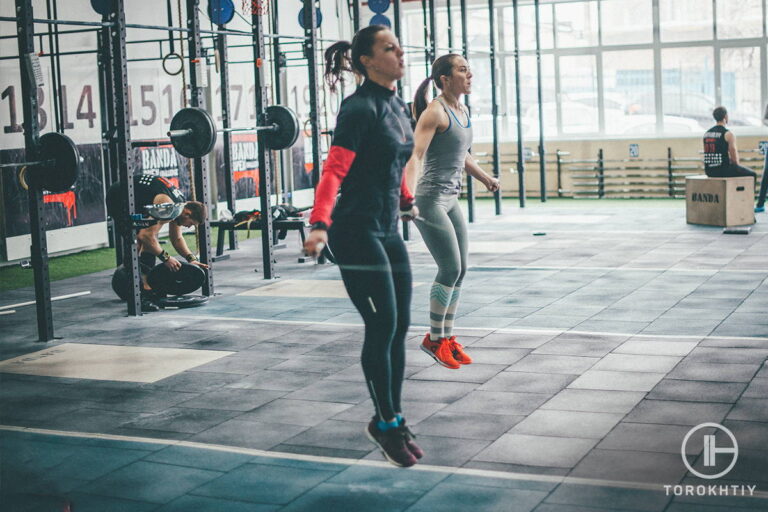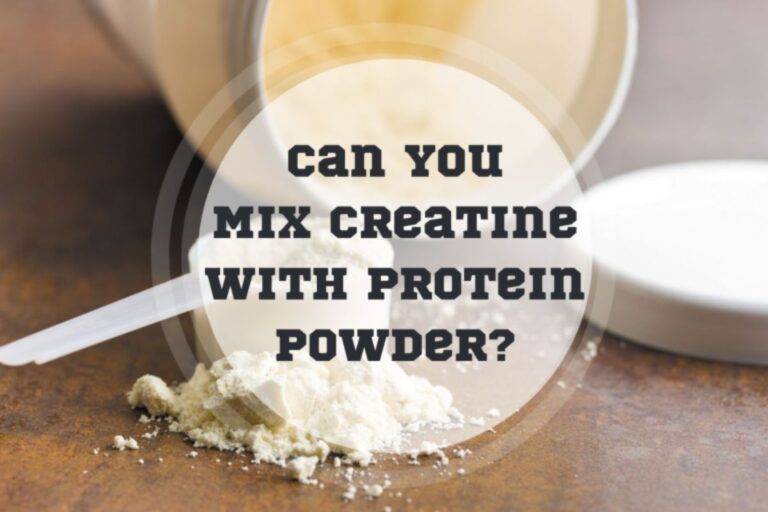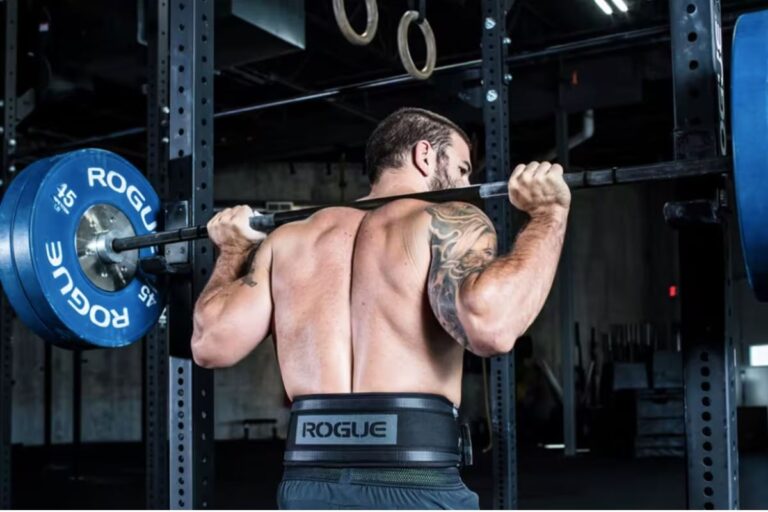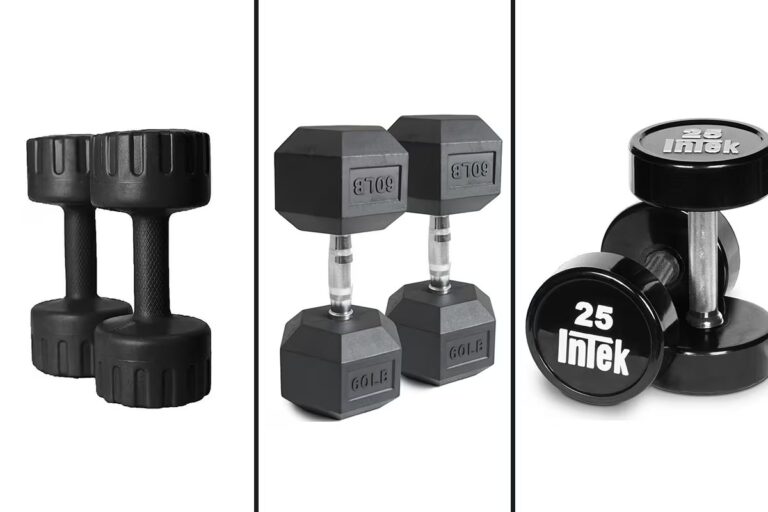Sources of Creatine: Meat vs Supplements?
Creatine is one of the most popular supplements among athletes. Especially among those who do strength and conditioning sports. This supplement has been studied in more than 1,000 experiments.
Creatine supplements increase the intramuscular concentration of creatine, which improves physical performance during training and adaptation to them. Studies have also shown that creatine intake can improve recovery from exercise and reduce the risk of injury.
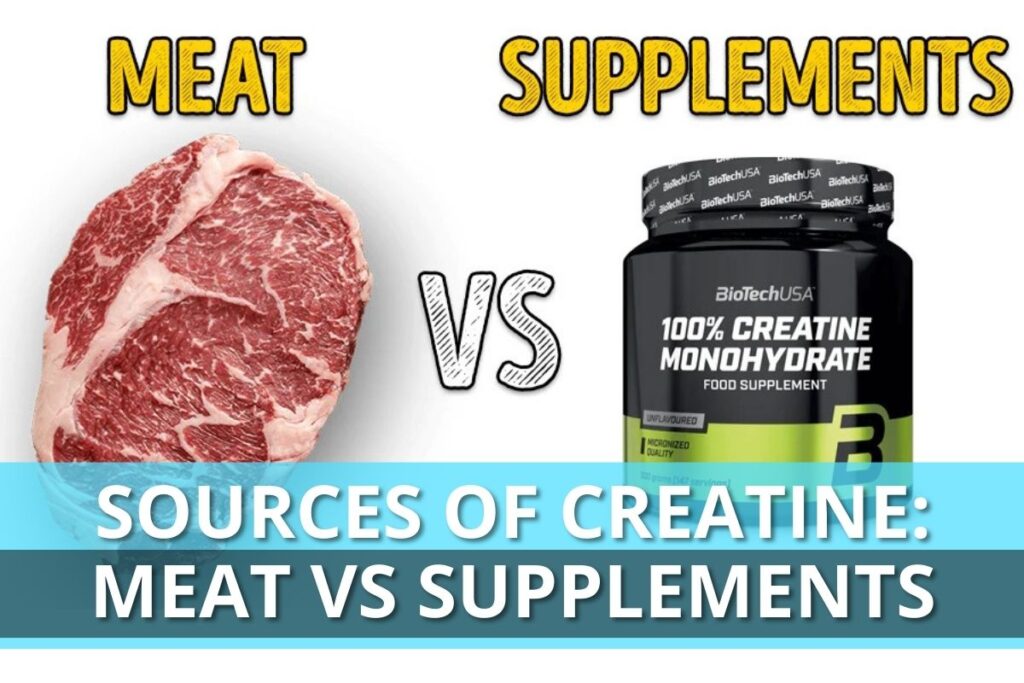
Sports nutritionists claim the following effects of creatine intake:
- muscle gain, as an adaptation to training
- enhanced glycogen synthesis
- increase of an anaerobic threshold that is important at training sessions of strength endurance
- increase of working capacity and easier load tolerance
- improved recovery.
Amount of Creatine in Our Muscles
The average 70 kg young male has a creatine pool of around 120-140 mmol/kg which varies between individuals depending on the skeletal muscle fiber type and quantity of muscle mass. In most people, creatine can accumulate in concentrations up to about 160 mmol/kg.
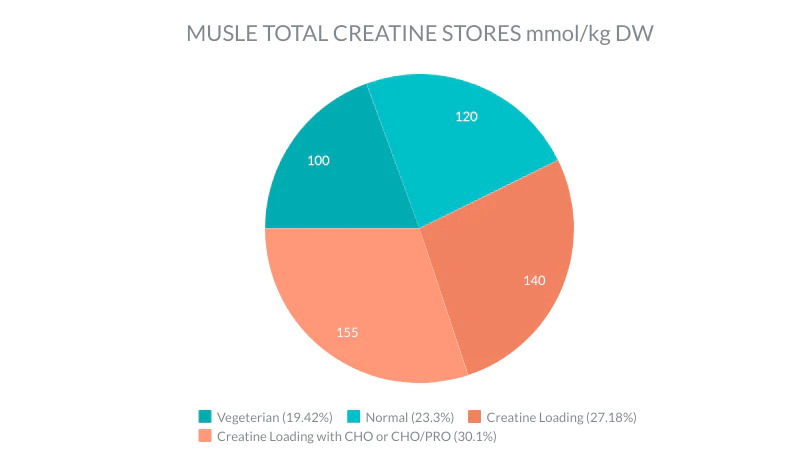
As can be seen in the chart, the lowest concentration of creatine has vegetarians (100 mmol/kg), followed by non-vegetarians (120 mmol/kg). In those who take creatine in the form of a supplement with a loading phase, the concentration increases to 140 mmol/kg of muscle, supplementing creatine with carbohydrates or carbohydrates and protein can reach 155 mmol/kg of lean muscle mass at the loading phase.
About 1-2% of intramuscular creatine is degraded into creatinine (metabolic byproduct) and excreted in the urine. Therefore, the body needs to replenish about 1-3 g of creatine per day to maintain normal (unsupplemented) creatine stores. The more muscle you have, the more creatine you need.
Creatine is a natural compound that accumulates in animals in the same body parts as in humans. Therefore, its best sources are skeletal muscles and the heart of animals.
The content of creatine per 1 kg of raw product is:
- herring – 6.5-10 g
- pork – 5 g
- beef and salmon – 4.5 g
- tuna – 4 g
- chicken and rabbit – 3.4 g
- cod – 3 g per 1 kg
- beef steak – 2.5 g per 1 kg
- flounder – 2 g per 1 kg
- pork heart – 1.5 g per 1 kg
Dairy products are poor in creatine. On the contrary, milk contains just 0.1 g per liter of creatine. By the way, natural creatine sources are absorbed more slowly than from supplements. The total bioavailability (amount of assimilated creatine) is absolutely identical.
🔻Maximum Performance Nutrition Program
Unlock your maximum potential with our Maximum Performance Nutrition Program. Tailored for weightlifters, this program offers serving-based diet planning, no food weighing required.
Perfectly complement your training for efficiency, body composition, competition prep, and weight class adjustments. Optimize performance, carbs, meal timing, and supplements.
Weightlifting Meal Plan Details:
- Easy step-by-step instructions;
- Serving control basis with no food weighing;
- Calorie intake is calculated for body mass;
- Adapts to your training schedule;
- Detailed guidance on progress tracking;
- Meal timing and serving sizes master tools;
- One-time payment for unlimited access.
Level up your game today!
So Do You Need Supplements?
Although fish and meat are sources of dietary creatine, we do not eat these products in kilograms. Even if we take 1-2 g of creatine from products, restock of creatine stocks replenish approximately 60-80%. In practice, the remaining 20-40% can provide creatine in the form of supplements.
In fact, taking creatine as a supplement certainly allows you to restock skeletal muscle reserves. This is especially true for men (and in particular, vegetarians) with impressive muscle mass, which may need 5-10 g of the supplement per day to maintain creatine stores. The rest need to take 3-5 g of creatine per day.
By the way, studies have shown creatine supplementation to have larger effects in vegetarians than meat eaters. Especially if you take creatine during the loading stage.
Let me remind you that the most studied form of creatine is the good old creatine monohydrate. It is currently the most effective supplement for athletes who want to increase physical performance, strength, and muscle mass. Well, given one of the cheapest prices, effectiveness, and safety of creatine monohydrate for healthy people, why not make it a №1 supplement in your diet?
You might be interested in:
Why Trust Us?
With over 20 years in Olympic Weightlifting, our team does its best to provide the audience with ultimate support and meet the needs and requirements of advanced athletes and professional lifters, as well as people who strive to open new opportunities and develop their physical capabilities with us.
By trusting the recommendations of our certified experts in coaching, nutrition, dietology, and sports training programming, as well as scientific consultants, and physiotherapists, we provide you with thorough, well-considered, and scientifically proven content. All the information given in the articles concerning workout programming, separate exercises, and athletic performance, in general, is based on verified data. We ensure that you can rely on our professionals’ pieces of advice and recommendations that can be treated as personalized ones which will benefit you and fully meet your needs.
The product testing process is described in more detail here
Author: Sergii Putsov
Head of Sport Science, PhD
Best Results: Snatch – 165 kg,
C&J – 200 kg
Sergii Putsov, Ph.D., is a former professional weightlifter and National team member, achieving multiple medals in the 94 kg weight category at national competitions. With a Master’s degree in “Olympic & Professional Sport Training” and a Sport Science Ph.D. from the International Olympic Academy, Greece, Sergii now leads as the Head of Sport Science. He specializes in designing training programs, writing insightful blog articles, providing live commentary at international weightlifting events, and conducting educational seminars worldwide alongside Olympic weightlifting expert Oleksiy Torokhtiy.



